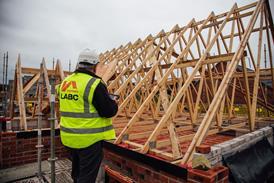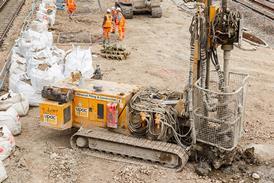Adjudicators, like prime ministers, rely on expert evidence to come to decisions. But what if they’re given duff information that reinforces their own bias?
Day one of the training course, “How to be a better adjudicator” brought to mind images of a course called “How to be a better prime minister”. One of my fellow trainees asked, “What’s the job really about?” A bright spark at the front of the class muttered, “Ask that bloke, Lord Butler”. A serious looking classmate said the job was all about making choices. “Close,” said the bright spark. “It’s all about being given the information to then make the right choices.”
The Butler report is all about the intelligence assessment Iraq’s weapons of mass destruction. Butler was asked to examine the intelligence gathered, then its evaluation and use by decision-makers … the prime minister and pals. It is just as though an adjudicator or arbitrator or judge had decided a building construction case and it turned out later to be an awful decision. Up pops Butler to investigate why the decision turned out to be so wrong. He investigates the expert report placed in front of the adjudicator. He asks the adjudicator: “Did you rely on this report?” “Yes,” says the adjudicator. “It was all pretty convincing stuff.”
Butler pokes him in the eye: “Damn it, man, now we know the experts’ reports were a load of rubbish”. Ah, but that is all the adjudicator had to go on at the time.
And let me invite you to do what I did. Read the experts’ reports of the Joint Intelligence Committee (2002) on 15 March, 21 August, 9 September and 24 September. Goodness me, they are convincing. If Tony Blair went to war on all that, it isn’t surprising. If these were experts’ reports in an adjudication and Blair went with them, it wouldn’t be at all surprising.
The decision-maker’s job is to make choices. An adjudicator makes choices based on the information given. There are two tasks: intelligent analysis then intelligent assessment. The analysis is the assembling of issues and sub-issues, the examination of evidence as to the strength of the facts, the hearing of opinion and expert evidence, and the collection of submissions about rights, duties and principles of law. These are the building blocks, the bits of Lego, that tumble out of the box on to the table. The analysis also requires an explanation or appreciation of the surrounding circumstances, the context, the backdrop – including the backdrop of people’s motives … to be partisan, to spin, even fib …
Damn it, why didn't A and B clear off and leave it all to me? I could be witness and expert and lawyer and fathomer of all their problems
Then comes the easy bit: the assessment, the making of choices about the information obtained by analysis. The adjudicator, arbitrator, judge chooses which evidence on the table is better than the rest, chooses which opinion evidence on the table is better than the rest. It’s a competition that the adjudicator has chaired. He presides over the input of information to ensure fair play. Then he assembles the information given and he makes choices about evidence, facts and law. He is a gatherer and then an evaluator. But, and this is important, he gathers only from what he is given. The adjudicator cannot toss in a bit of Lego of his own. I used to do that. I was so wrong. In those days I thought I was just asking questions. Soon it dawned on me: I had strayed into ideas of my own.
My questions were answers; I was doing what some judges do. I was cross-examining A to the advantage of B. I was asking about the law to the advantage of A. I was suggesting facts to A and B to create blocks of my own. Damn it, why didn’t A and B clear off and leave it all to me? I could be witness and expert and lawyer and fathomer of all their problems. Or, was I doing what Michael Portillo, MP, one of the columnists on The Sunday Times, accused Blair of doing: “Blair was not working his way forward from evidence to decision, but tunnelling backwards from his decision in search of reasons for war.”
Was I tunnelling backwards as an adjudicator? Was I tossing in blocks to unwittingly tunnel? Was Blair happily relying on experts’ reports that he simply liked and supported his own conclusions? Is this prime minister human? Did he not actually get to the assessment stage at all? Do adjudicators?
Tony Bingham is a barrister and arbitrator specialising in construction. You can write to him at 3 Paper ��ɫ����TVs, Temple, London EC4 7EY, or email him on info@tonybingham.co.uk























No comments yet